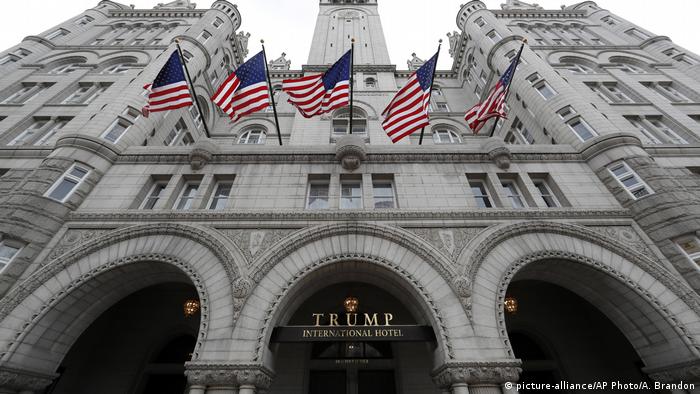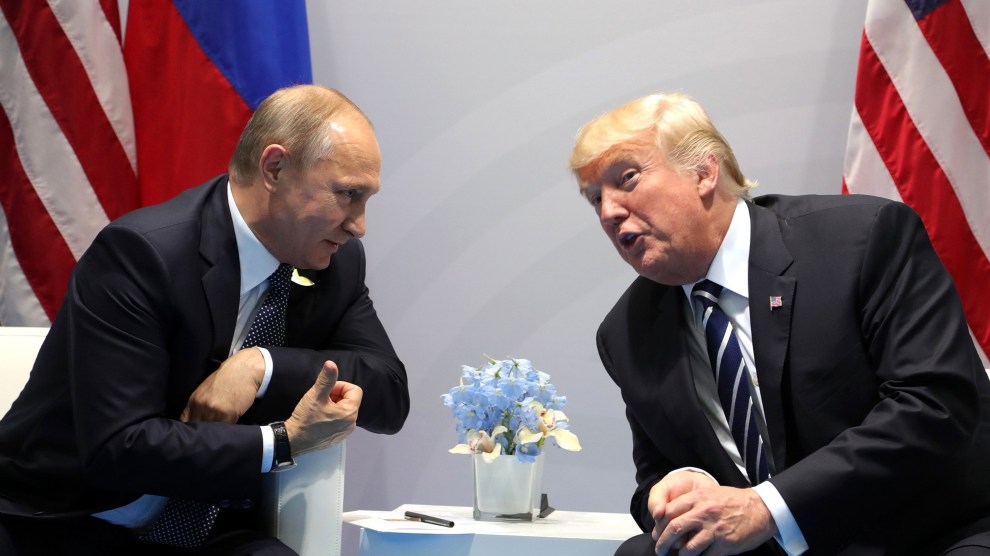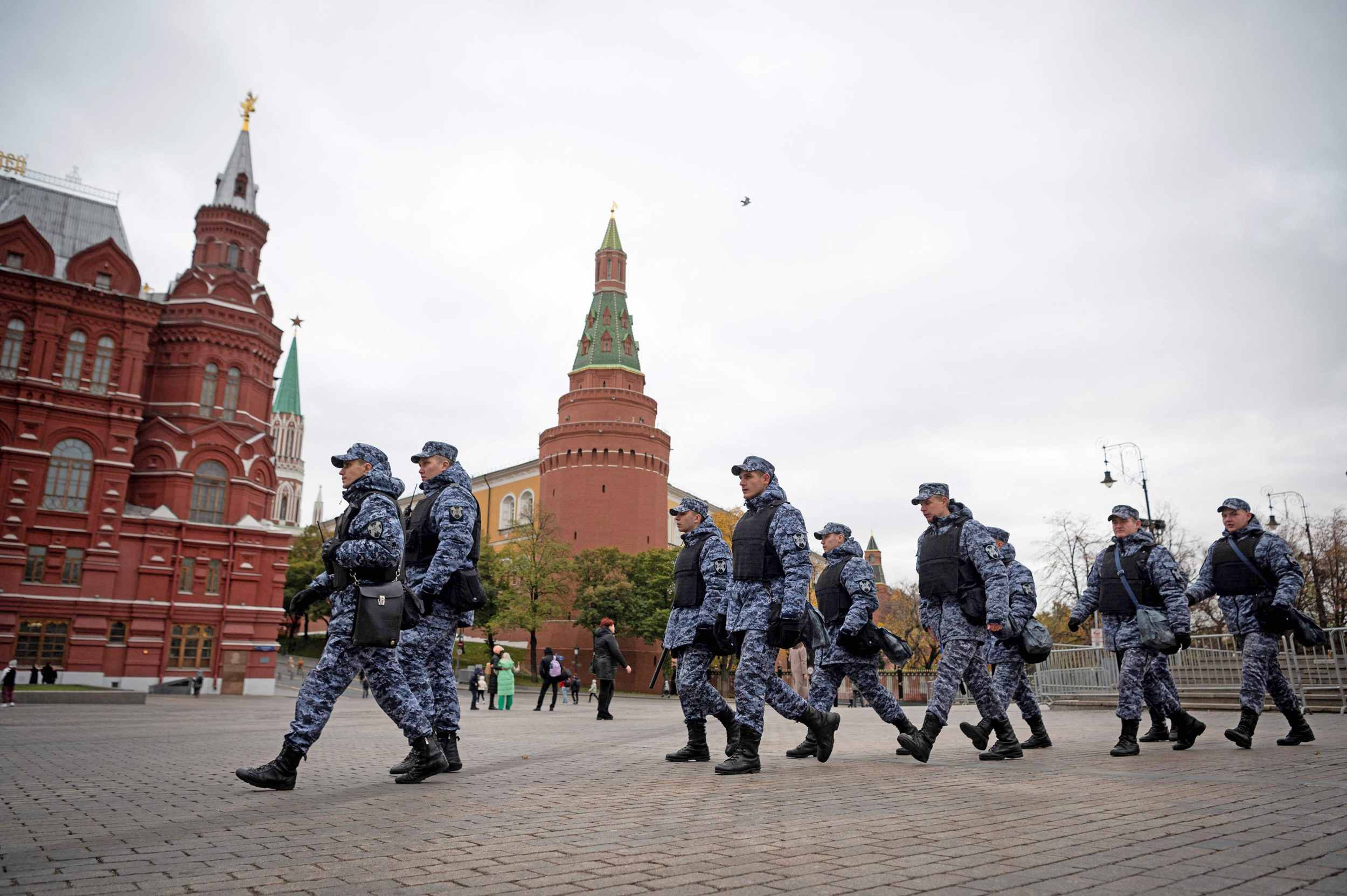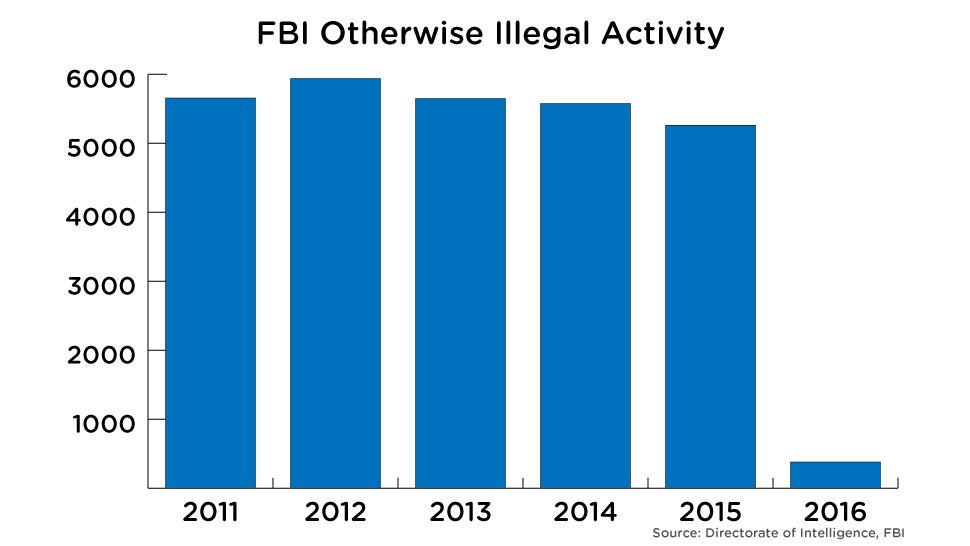The Rebirth of Abwehr
Russia is in alliance and in tandem with Germany
“German Election Mystery: Where’s Russia?” – The New York Times

M.N.: Answer: Russia is in alliance and in tandem with Germany, just like in their previous anti-American shenanigans.
- THE “GERMAN HYPOTHESIS” OF THE “TRUMP-RUSSIA SCANDAL”
- The mask of humanity, the face of hypocrisy: “My mistress’ eyes are nothing like the sun… black wires grow on her head…”
In a move that would seem unimaginable in the United States, the campaigns for the major political parties entered into a “gentleman’s agreement” this year not to exploit any information that might be leaked as a result of a cyber attack.
Germans also still largely trust their mainstream, traditional news media sources and, unlike Americans, tend to be wary of information disseminated on Facebook and Twitter.
Officials warn that there is still a chance that some 16 gigabytes of sensitive information stolen two years ago by Kremlin-backed hackers from Germany’s Parliament, the Bundestag, could surface, much like emails taken from the campaign of Emanuel Macron were dumped days before the election in France.
In January, someone registered two websites, btleaks.info and <a href=”http://btleaks.org” rel=”nofollow”>btleaks.org</a>, which reminiscent of the DCLeaks website that served as a repository for documents stolen from the Democratic National Committee last year. Staffers from Germany’s domestic intelligence agency have been assigned to check those websites hourly.
But few think the information if leaked would make much difference at this point. The latest polls show Ms. Merkel in a comfortable lead ahead of her chief rivals, making it likely that she will secure a fourth term as chancellor.
So why has Russia held back?
After failing to defeat Mr. Macron or so far obtain any positive dividends from its support of the Trump campaign, it is possible, experts say, that the Kremlin has decided to rethink its approach.
Russian influence operations, or active measures as they are known, tend to work only if no one is expecting them. Unlike the Obama administration, which chose to remain silent about Russia’s meddling for months before the election last November, German officials cannot seem to stop talking about the threat.
Weeks after the election of President Trump, Bruno Kahl, the head of Germany’s foreign intelligence service, the BND, warned of cyber attacks aimed at “delegitimizing the democratic process” in Germany. Ms. Merkel herself has issued similar warnings.
“It makes absolutely no sense to conduct cyber ops because everyone is waiting for it,” Dr. Gaycken said. “It would almost make more sense for the C.I.A. to leak fake news to make it seem like the Russians did it.”
Ripjar, a data analytics company founded by former members of Britain’s Government Communications Headquarters, says that scores of automated bots on Twitter and other social media sites have been pushing anti-Merkel and anti-immigrant messaging in German. The messages appear to align with Kremlin positions ahead of the election, but do not seem to have had much resonance.
“It is a very blunt tool that I would assess has very little impact on the world,” said David Balson, Ripjar’s director of intelligence.
Perhaps Germany’s greatest protection is not some 21st century innovation but old-fashioned paper ballots, counted by hand, that are essentially hack proof.
It would be a mistake to think the aggressive Russian interference in elections last year represented some kind of new norm, said Thomas Rid, a professor at Johns Hopkins University who is writing a book on Russian active measures. These types of operations, he said, are extremely difficult to pull off and, as the world has seen, can backfire. In many ways, he said, the Russians just got lucky.
“I think one of the risks of the 2016 operation is that we all overestimate how much you can achieve from it and how easy it is,” he said. “You just can’t replicate this in the country every time.”
Nevertheless, Germans prepared well in advance for any hint of Russian interference.
The Federal Office for Information Security ran penetration tests looking for vulnerabilities in computer systems and software of the federal election authority. The Bundestag and the individual campaigns consulted with experts about strengthening their computer security. And major news media outlets established teams of fact checkers to protect against fake news.
German officials are now looking beyond the elections at ways to bolster the country’s cyber defenses even further.
At the Federal Security Council meeting, which was held in March, officials hammered out what has become known as the “hack-back” strategy. The plan is to try to turn the tables on the hackers, launching offensive cyber attacks against them and destroying their online infrastructure before any real damage can be done.
While the German military can now legally launch a cyber offensive following hacker attacks on military resources, there is no provision in German law allowing for the country’s cyber forces to respond to attacks on civilian infrastructure like the power grid, hospitals or servers that process election results.
“Our cyber defenses are Swiss cheese,” said Jacob Schrot, a Bundestag staffer responsible for intelligence oversight and cyber security matters.
Russia is not the only threat on this front. Germans are still angry about revelations made by Edward Snowden that the National Security Agency under President Barack Obama had hacked into Ms. Merkel’s cellphone.
Though a precise plan of action has yet to be implemented, that federal authorities would even consider taking offensive action against an enemy is a measure of how seriously the country has come to view the cyber threat.
Enduring trauma of the Nazi era has made Germans squeamish about flexing their country’s military muscles. But Russia’s recent history of revanchism under President Vladimir V. Putin — not just interfering in elections but supporting hard-right nationalist parties in Europe and dabbling in military adventures, like the annexation of Crimea and instigation of war in eastern Ukraine — has forced Germans to confront a new reality.
Marian Wendt, a member of Parliament from Ms. Merkel’s party, the Christian Democratic Union, who oversees cyber security issues, said in an interview that Germany would prefer cooperation with Mr. Putin and Russia. But he said Germany also had a responsibility to protect itself.
“At some point you have to attack your attackers,” he said.
The hack-back strategy has stirred controversy here, with some charging that it comes close to violating Germany’s constitutional prohibition of offensive warfare adopted after the country’s defeat in World War II. Cyber experts also question whether Germany possesses the technical expertise to pull off such a tactic, particularly against Russia’s own highly advanced teams of cyber warriors.
“Our main challenge right now is a shortage of skilled IT security workers,” said Sven Herpig, a cyber security expert with a German think tank, Stiftung Neue Verantwortung. “Why do we waste the few talents that we have on the offensive side when we could actually use them on the defensive side.”
Germany’s talk of offensive cyber actions could also escalate tensions with the Kremlin, said Mr. Rid, from Johns Hopkins University. And with Russia quiet at the moment, many question the wisdom of provoking it.
“Loose German talk of hack-back,” Mr. Rid said, “could translate into Russian as ‘bring it on.’”
Continue reading the main story
|
German Election Mystery: Where’s Russia?
New York Times Russian influence operations, or active measures as they are known, tend to work only if no one is expecting them. Unlike the Obama administration, which chose to remain silent about Russia’smeddling for months before the election last November …and more » |
One of those issues is a Department of Justice investigation into the bank’s role in a Russian “mirror-trading” scheme that allowed some Russian oligarchs to trade rubles for dollars and thereby funnel money out of Russia. This was a money-laundering scheme designed, in part, to allow oligarchs with close ties to the Kremlin to dodge sanctions imposed on them by the US in the wake of the 2014 Ukraine crisis.
This investigation has nothing to do with Trump – he is not alleged to have had any role in the activities being investigated – but the fact that he is president means that any decisions taken by US federal regulators about Deutsche will provoke questions about conflicts of interest, according to Norman Eisen, who was ethics counsellor in the Obama White House, in a recent interview with the Financial Times (FT).
 The Old Post Office Building in Washington DC was redeveloped by the Trump organization into a Trump International Hotel for about $200 million
The Old Post Office Building in Washington DC was redeveloped by the Trump organization into a Trump International Hotel for about $200 million
“Whether it’s the investigation, the regulatory climate [or] a hundred other ways that Deutsche Bank is affected by the federal government, if they have this leverage over Donald Trump now, having seen how he operates, I think it’s entirely legitimate to question whether he’ll be even-handed,” Eisen told FT.
Potential conflict of interests
__________________________________
Putin’s Dead Souls
Putin’s pro-Trump operation: the dead souls, political marketing, and psychotronic weapons – by Michael Novakhov

The improvement in the US – Russia relations is needed, and it is desirable. It looks like they cannot descend any lower, as Mr. Tillerson noted.
- But who needs the “false”, pretended, “make believe” improvement, rather than the real one? The Russians have the incurable historical affliction with the “Potyomkin villages”.
- This story rings also with the other Russian literary-historical allusion, Gogol’s “The Dead Souls”. Mother Russia (whoever is behind this front) is in her old, familiar and the most favorite historical element: creating, operating, buying, and weaponizing The Dead Souls, in this case, the fake social media accounts and the automated bots. This political necrophilia points to the main historical problem of the contemporary Russian society and culture: the Russian collective soul is dead and without a future. The modern Chichikovs trade their stuff and goodies in the similar underhanded ways and for the similar purposes: prestige, wealth, and the illusion of power. And the essence of this operation is the same: deception, although on a grand, truly Russian scale.
Mr. Putin had already married Mother Russia by deceit and his political chicanery. Now he wants to start a romance with Uncle Sam too, and decides to strategically flood the social media with the pre-election messages via the “dead souls’ bots”.
- As Sen. Mark Warner put it, Facebook’s disclosure could be just “the tip of the iceberg.”
- This circumstance gives us even more reasons to believe that “a Facebook warrant could signal a turning point in Mueller’s investigation”.
- “We don’t know what these Facebook ads looked like, we don’t know who they were targeting, and we don’t know how many millions of Americans may have been exposed to them.”
And we do need to know the answers to these and many other questions.
If it is convincingly demonstrated that the extent of this problem is significant enough to affect the outcome of the elections (and that’s how it looks in key, “swing” states now), and the hostile foreign power was behind it, then the legitimacy of elections should and will be questioned and legally challenged, which may lead to their annulment and the new substitute elections.
“While Facebook hasn’t publicized many specifics about the Russian political ad efforts, The Wall Street Journal reports that special counsel Robert Mueller has copies of the ads, information about the accounts that purchased them, as well as about the targeting criteria they used.”
- Putin’s Pro-Trump Operation May Have Been Far Bigger Than We Yet Know – Mother Jones: this article is a good, up to date summary of the issues under discussion. Some of these issues, although not discussed widely, are
- the Connections between the accidents, incidents, and elections – did we look into it? – (by Michael Novakhov – 9.12.17):
If “Russia used Facebook to organize racist rallies to help Trump”, why can’t we venture a mental step further and assume that the increase in the incidents of mass shootings, aggression against the police, incidents with the racial overtones, transportation accidents, all of which demonstrate the clear statistical “pre-election bumps” (hikes, increases), in 2008, and in 2012, and in 2016, were inspired, and/or conducted by the same actors, and with the same goal: to “elect” their candidate, which in 2016 apparently was Trump. Did we look into it?
The answer, (that all these listed phenomena are the hypothetical parts of the same operational whole) is clear to me, on the basis of the daily monitoring of the press reports on these subject in 2015 and 2016. Compile and analyze the statistics, and I think, you might get the same or the very similar impression. See also posts on this subject in my blogs. It is interesting to note, that this opinion, regarding the presence of the signs of the foreign interference in the elections prior to 2016, (although not necessarily with the same range of agreed upon details and analysis, and independently arrived at), coincides completely with the opinion of Mike Pompeo who surely is very well informed on this subject. CIA Director Mike Pompeo: ‘Of course’ Russia interfered in the 2016 election, ‘and the one before that… I am confident that the Russians meddled in this election, as is the entire intelligence community,” Pompeo said, appearing agitated at the skepticism towards his previous answer. “I hope I didn’t stop at 2008 [for when he says Russian began interfering in U.S. elections]. You can go back to the 70s. My point was simply this: This threat is real. The U.S. government, including the Central Intelligence Agency, has to figure out a way to fight back against it and defeat it. And we’re intent upon doing that.”
There must be a much broader group of people who share more or less the same impressions and the same opinion: the foreign interference in the US elections is a long-standing phenomenon, and especially malignant from 1950-s, on a post-WW2 wave.
What we need now, is not just the impressions and opinions, but more or less definitive studies, including the high-quality statistical ones, on this very important and forward-looking subject, and also, of course, the strategic thinking and the strategic planning.
See also:
These issues, described above, might not be under the direct purview of Mr. Mueller’s Investigation. Clearly, they are enormously important, and we also have to consider our common, human, and understandable reluctance to look into this moral and the political abyss.
However, we have to do this: to investigate these hypothetical connections with the utmost thoroughness and depth, the wellbeing of this nation depends on it. I think, in my, as always, very humble and the non-specialist opinion, that the DOJ and the FBI have to either establish a separate investigation into these matters or to broaden the scope and the mandate of Mr. Mueller’s investigation.
The whole issue of the FBI recordkeeping, statistical and other reports, and other aspects of the paperwork comes into focus: they simply do not always and necessarily keep the records: it is so much easier and so convenient for them: no accountability, no outsider will be able to learn about their crimes.
This has to end.
Investigate the Investigators! Save America! Reform the FBI!
See also:
Presently I see two aspects in the specifics of Trump’s campaign use of social media:
1) use of business principles of marketing, “political marketing”, or marketing of “Trump for President” as business product, and
2) possible use of the “psychotronic weapons” techniques (in targeted advertising for voters), which might be rooted in the concepts and practices of the Soviet, and later Russian Military Intelligence.
Both aspects deserve further attention and elaboration but the subject of the “psychotronics” and their role is rather complex, enigmatic, shrouded in the many layers of secrecy, and should be addressed and discussed separately by a specialist who knows what he is talking about if such an entity does exist at all.
The old adage may apply to the elections process: “People choose to hear what they want to hear.” Voters make their decisions on the basis of identification with the parties, cause or leaders.
For example, the so-called “Voters of moderate expectations” are not emotional but rational choosers. They “shop” for their parties and candidates: “They do their homework, put things to the reasonableness test, and decide who will get their votes.”
“Trump supporters are of two principal types: right wing populists and Republican diehards. The right wing populist types can be characterized as “low information voters.” In other words, it is their (political) ignorance that is been exploited.
Trump channeled their anger and gave it his voice. He was thinking thoughts and saying things that they wanted to say in the way that they wanted them to be said. In other words, they are a flock of sheep, who are not able to but want to be the rebels -wolves, they identify with the aggressive leader as their ideal, which embodies the traits that they lack. It reminds the histories of the fanatical adoration of “Fuhrer” or Stalin’s “personality cult”. “Voters who still score high on authority/loyalty/sanctity and low on care… are significantly more likely to vote for Donald Trump. These are the true authoritarians…”
To summarize and put these statistics in a simple form: Trump supporters are more of the racists.
“The supporters labeled “Republican diehards” fall into the High Anxiety category. When asked how they can do a complete turnabout and support Donald Trump rather than their earlier and much more preferred choices, their usual retort is, “Anyone but Hillary.” This is because they viewed her as a part and extension of the Obama administration, which they blamed for all their (personal and other) problems and troubles, fairly and justifiably, or, much more likely – not. This is the psychosocial mechanism of “scapegoating”.
Apparently, “political psychographics” were adopted from the economic ones – from the market research. This circumstance might be an illustration of how Trump views his voters and his electorate: simply as the political market which has to be penetrated and conquered. This is a business approach to politics: the voters are simply the consumers who have to be persuaded and manipulated into buying this product, which is “Trump for President”.
Trump wanted to sell this product the same way he sells his real estate and his own TV personality. He wanted to learn about the ways to market this product the same way any other market is researched and studied. He views himself as a business product. The flip side of this coin is that he views other people in his personal and political life as the products too: they can be bought, sold, and manipulated. His is a cold and lonely world, indeed.
Trumpism is the apex of the business mentality and business power in America. He views America as his next business venture and intends to manage it accordingly: as the USA, Inc.
The soul is gone. The truth is gone. The humanity is gone. The essence of our nature is gone. The economic “consumer society” will accomplish its historical “merger and acquisition”, conquer everything and everyone else and will be transformed into the totalitarian political “consumer society”.
With all this, I do not intend to demonize Trump personally at all. He does have a considerable personal charm and even has what looks like sincerity, and even comes across as a rebellious and vulnerable child. In his seventies – analyze ZIS! But aren’t we all, and at any age? Our “inner child” never disappears and never grows up, it is our ontogenetic core.
Is Trump just a product of his (ruthless? soulless? mechanistic? primitively arithmetically calculating? and still ultimately enigmatic? and psychologically and sociologically misunderstood? and understudied?), the so-called “business world”, which can be viewed as the childishly predatory by its very nature?
Returning to the basics, the Information War “declared” against the U.S. in 2016, would be impossible without its “cyber” aspect. Based on the events of the past year, for all the practical intents and purposes, it should be assumed, that all digital records worldwide, and first of all, the U.S. digital records are properly and completely penetrated and appropriated (accessed and stolen, to put it simply) by the hostile actors or their consortium. Some of this data is very likely combined with the data from the human sources into an integrated database. This might be a decisive factor in voters and elections manipulations: influence on candidate preferences and individual tailoring of the advertising on the social media. All, without exceptions, social media outlets, not just Facebook, should be examined for these operations.
Most likely, all these events and their connections, aspects, and facets, and the other events, still hidden and unknown to us, are the parts of the overall, single, concerted and the well-coordinated effort as the hostile intelligence operation, conducted by the multiple actors for their various and multiple purposes.
Links
- Putin’s Pro-Trump Operation May Have Been Far Bigger Than We Yet Know – Mother Jones
- Anatomy of a Russian attack: From robocalls to hoaxes, a look at tactics used | WTOP
- Trump’s plan for a comeback includes building a ‘psychographic’ profile of every voter – The Washington Post
- The Mind Of The Trump Supporter | HuffPost
- “Trump for President” as business product – Google Search
- Big Brother Trump – Google Search
- Psychographics vs Demographics in analysis of voting behavior – Google Search
- psychotronic weapons and voters – Google Search
- psychotronic weapons and voters advertising – Google Search
- psychotronic weapons and voters targeted advertising – Google Search
- Cambridge Analytica – Google Search
- Robert Mercer – Google Search
- The Reclusive Hedge-Fund Tycoon Behind the Trump Presidency | The New Yorker
- alexander nix cambridge analytica – Google Search
- robert mercer russia – Google Search
- The key to the Trump-Russia scandal? Follow the data
- Brad Parscale – Google Search
Michael Novakhov
9.20.17
___________________________
Trump – Current News In Brief
___________________________
Saved News In Brief




